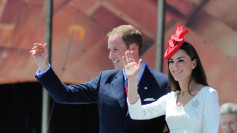Russian President Vladimir Putin sat down with Tucker Carlson, signaling a potential diplomatic window for the release of Wall Street Journal reporter Evan Gershkovich, who has been detained in Russia on espionage charges. During the interview, Putin articulated a conditional openness to negotiate Gershkovich's release, emphasizing that Russia has exhausted its unilateral "gestures of goodwill" and now expects "reciprocal steps" from the United States.
"There is no taboo to settle this issue," Putin stated, indicating a readiness to engage in discussions for Gershkovich's release, provided there is a quid pro quo. "We are willing to solve it but there are certain terms being discussed via special services channels. I believe an agreement can be reached," he added, laying the groundwork for potential diplomatic negotiations.
Gershkovich's arrest in March while reporting in Yekaterinburg has drawn international attention and condemnation, particularly given the serious nature of the espionage allegations leveled against him by Russia's Federal Security Service. The U.S. government, along with Gershkovich and the Wall Street Journal, has denied these charges, and Moscow has yet to present public evidence supporting its claims.
Putin's assertion during the interview that Gershkovich was caught "red-handed" while allegedly obtaining classified information has added a layer of intrigue to the case. "The fact has been proven as he was caught red-handed when he was receiving this information," Putin claimed, further complicating the narrative surrounding Gershkovich's detention.
Despite the gravity of the accusations, Putin expressed a pragmatic stance on the matter, hinting at the futility of keeping Gershkovich imprisoned in Russia indefinitely. "But at the end of the day, it does not make any sense to keep him in prison in Russia," he remarked, suggesting a potential pathway to Gershkovich's release through diplomatic channels.
The interview with Carlson, a notable figure following his departure from Fox News, offered Putin a platform to articulate Russia's position on various contentious issues, including the ongoing conflict in Ukraine. The discussion around Gershkovich's case, however, stood out as a moment where Putin appeared to dangle the possibility of the journalist's release as part of a broader negotiation with the U.S.
Ep. 73 The Vladimir Putin Interview pic.twitter.com/67YuZRkfLL — Tucker Carlson (@TuckerCarlson) February 8, 2024
Carlson's questioning about Gershkovich's imprisonment and the feasibility of his release "as a sign of your decency" prompted a response from Putin that underscored the transactional nature of international diplomacy. "We have done so many gestures of goodwill out of decency that I think we have run out of them," Putin retorted, setting the stage for a negotiation where both sides would need to offer concessions.
As the global community watches closely, the resolution of Gershkovich's case could become a significant indicator of the temperature of U.S.-Russia relations. The intricacies of the diplomatic dialogue, as hinted at by Putin, suggest that both nations may be exploring avenues to de-escalate tensions, with Gershkovich's release potentially serving as a litmus test for future engagements.






